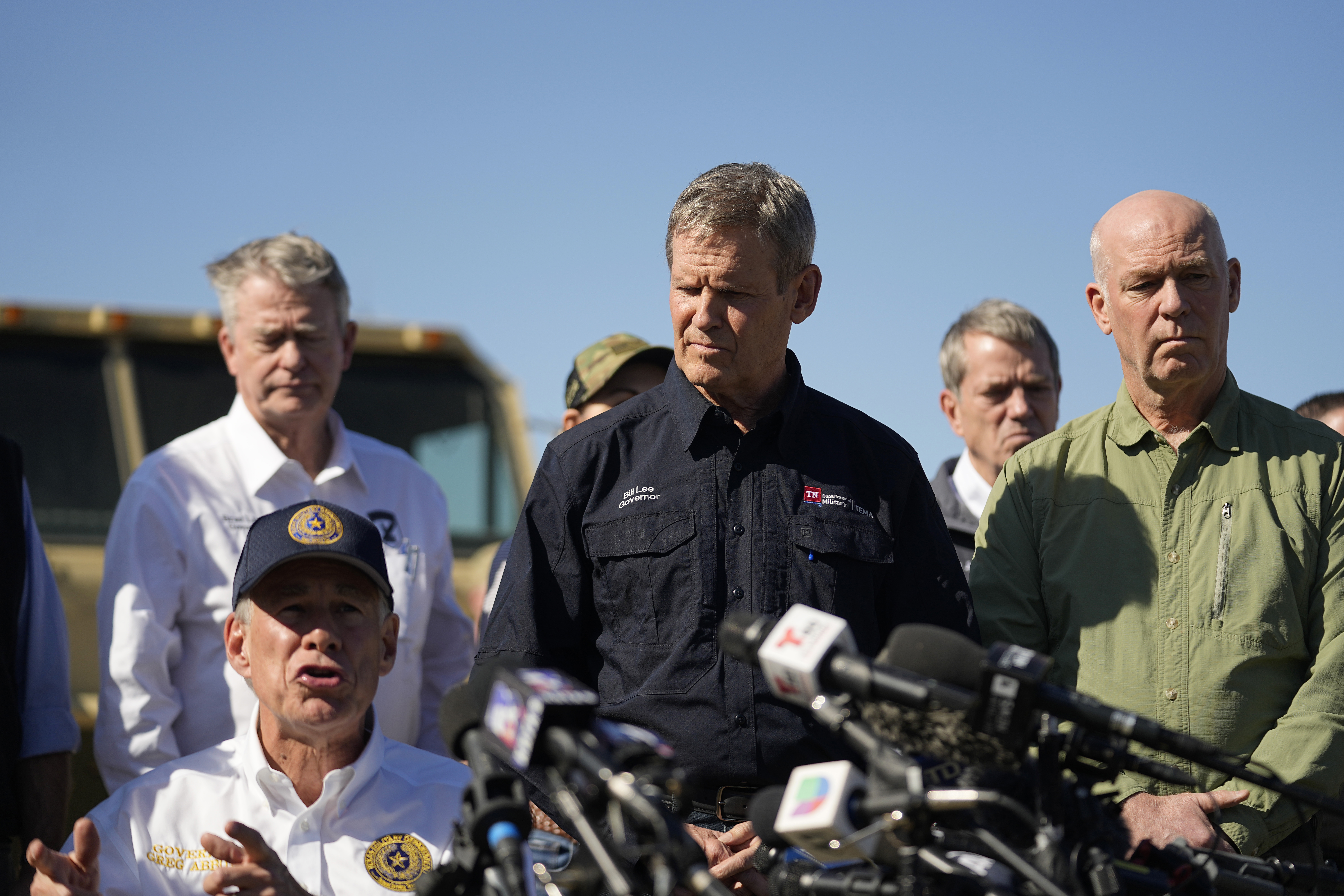
Biden told a bipartisan group of governors at the White House on Friday that he is exploring what executive actions he can take to curb crossings at the southern border, but is running into potential legal obstacles.
He also pushed governors to pressure their congressional delegations to resurrect the border bill that a bipartisan group of senators spent months negotiating only to have it implode within 48 hours of its release. And he criticized Republicans for scuppering the deal amid opposition from former President Donald Trump.
Democratic governors quickly heeded Biden’s call.
“I hope that Republicans will join Democrats in taking border security seriously and saying, let’s secure the border and control the flow of immigration, instead of having the chaos we have now,” said Colorado Governor Jared Polis. whose state has been dealing with an influx of immigrants to Denver, he said in a brief interview at the NGA meeting.
“There is an opportunity to ask Congress to take action,” he said.
But Montana Gov. Greg Gianforte, who was among more than a dozen Republican governors who visited the border crossing in Eagle Pass, Texas, earlier this month to criticize Biden’s handling of immigration issues, reiterated his argument that the border could be controlled by executive action. .
“I was very disappointed in the meeting” with Biden and administration officials at the White House, Gianforte told reporters Saturday. “There are many things President Biden could do to secure the border and he refuses to act.”
Gianforte said he presented Biden with a copy of the 10-point border security plan that Republicans first presented to his administration more than two years ago. He called for, among other things, an end to catch and release.
Biden, Gianforte said, never responded to the initial letter. On Friday “he said he would read it,” Gianforte said, noting that he would take Biden at his word.
He added: “Joe Biden needs to do his job.”
Oklahoma Gov. Kevin Stitt, a Republican, weighed in in an interview on “Fox News Sunday” and called on Biden to reinstate the “remain in Mexico policy,” a Trump-era program that requires asylum seekers to remain. in that country while awaiting approval. audience.
“Actually, we just heard some excuses,” Stitt said.
Biden did not specify to governors what executive actions he expected to take, said Utah Gov. Spencer Cox, a Republican who chairs the National Governors Association. Cox told reporters that the president was “working with his lawyers, trying to understand what executive action would be upheld in the courts and would be constitutional.”
The president, Cox said, “seemed a little frustrated at not getting answers from lawyers who felt he could take the kind of actions he wanted.”
POLITICO previously reported that ideas the Biden administration is discussing include using a section of the Immigration and Nationality Act to prevent migrants from seeking asylum between U.S. ports of entry and tying that directive to a certain amount of illegal crossings.
Cox said “the president can do more at the border” to enforce laws already in place.
Despite pressing the president to take executive action at the border, Texas Governor Greg Abbott said he would not support Biden’s proposal to restrict migrants’ ability to seek asylum after illegally crossing the border.
“No. Because if you granted asylum after immigrants crossed the border illegally, that would be authorizing illegal immigration and that would cause chaos,” Abbott said during an interview on CNN’s “State of the Union.” He continued to echo the Cox’s call for Biden to better enforce existing immigration laws.
Meanwhile, Idaho Gov. Brad Little, a Republican, cast doubt in a brief NGA interview that Biden could reduce the timeline for asylum cases to months rather than years, as he hopes to do by granting new authority to asylum officials, without adding more immigration judges.
Even as Republican governors publicly resorted to partisan calls for Biden to take executive action to ease the border crisis, Andy Beshear, the Democratic governor of Kentucky, insisted to reporters that behind the closed doors of the White House there were “so many Democrats as Republicans who want a solution and who don’t think that Congress can just sit on the sidelines.”
Tim Walz, the Democratic governor of Minnesota, said that if he ran as a Republican in a state where federal lawmakers would not vote for the border bill, “I would be nervous, because we are going to beat them up. for not doing this, because these are the solutions, and they do not deny that they are the solutions.”
Walz, at a roundtable hosted by the Democratic Governors Association, recounted how he had asked Republican governors at the White House meeting who would support the bill and which parts they disagreed with.
“There was no response,” he said.
Still, North Carolina Democratic Gov. Roy Cooper expressed hope that the legislation could still pass.
“We’ve seen a lot of important laws over the decades sometimes come back to life,” Cooper told reporters. “If Republican and Democratic governors got together and said this legislation is important for our national security and for the people who live in our states, that would be a powerful thing.”
Zach Montellaro and Kelly Garrity contributed to this report.

